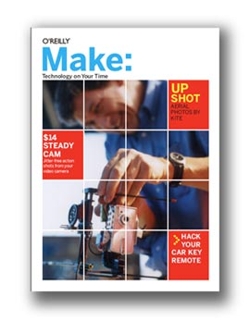I’ve only just begun to read through this, but it certainly appears to live up to its billing.
A Taste Of Computer Security. andrew_ps writes “Amit Singh has published on his KernelThread.com a paper (mini book really) on computer security. A Taste of Computer Security is a VERY comprehensive paper in what it covers, but is remarkably easy to read. This is not some list of “sploits” though! Topics covered include popular notions about security, types of mal-ware, viruses & worms, memory attacks/defences, intrusion, sandboxing, review of Solaris 10 security and plenty of others. Most notably it includes probably one of the most fair and intelligent analysis of the Unix-Vs-Windows security issue that I have ever seen.” [Slashdot:]

 Today, at OSCON in Portland,
Today, at OSCON in Portland,